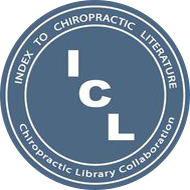Objective: The purpose of the study was to investigate pulmonary functions of patients with chronic neck pain and compare them with those of asymptomatic controls.
Methods: This case-control study was conducted with 25 patients with chronic neck pain (age, 26.84 ± 7.89 years) and 27 age-matched asymptomatic controls (age, 25.96 ± 7.13 years). Pulmonary function tests were performed using spirometry (Quark PFT, COSMED, Rome, Italy). Forced vital capacity (FVC), forced expiratory volume in the first second (FEV1), forced expiratory flow at 25% to 75% vital capacity, peak expiratory flow, maximum voluntary ventilation, and the FEV1/FVC ratio were measured and are expressed as (%) predicted value for patients with chronic neck pain and asymptomatic controls.
Results: The chronic neck pain group had lower FEV1 (P = .015), FVC (P = .029), forced expiratory flow at 25% to 75% vital capacity (P = .040), and maximum voluntary ventilation (P = .042) compared with asymptomatic controls; however, FEV1/FVC (P = .470) and peak expiratory flow (P = .183) were similar in both groups.
Conclusion: These results demonstrated that dynamic lung volumes were lower in patients with chronic neck pain compared with asymptomatic controls.
Author keywords: Disability Evaluation; Neck Pain; Spirometry; Respiration; Respiratory Function Tests
This abstract is reproduced with the permission of the publisher; full text is available by subscription. Click on the above link and select a publisher from PubMed's LinkOut feature.
